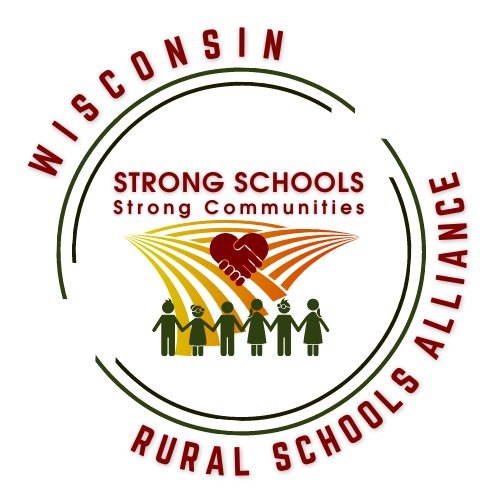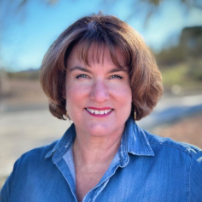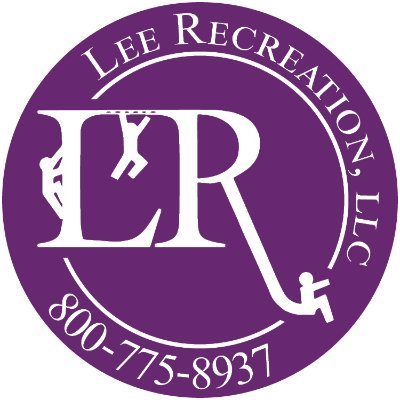WiRSA INFO
WiRSA Bylaws
WiRSA Board
WiRSA Map by Region
WiRSA Members
Why Join WiRSA
Become a Member
Membership Brochure
WiRSA Facebook
Rural/Town Map
Rural Definition & Maps
WiRSA Board Minutes
Quick Links
Assembly Committee on Education
Senate Committee on Education
Teacher Apprenticeship Dept. of Work Force Develpment
School Data Tools
DPI - Legislator by School District
Special Education Interactive Map
2022-23 Interactive State Map Voucher Aid Reduction for Wisconsin Public Schools
ELC (Education for Law Center - Special Education Funding Crunch Information
WiRSA Update - July 30, 2024
Announcments
Keynotes at our 2024 WiRSA Conference!
(Monday, October 28 - Tuesday, October 29)
Our very own Joe Sanfelippo has been keynoting at various events across the United States. He delivered a powerful message at our Rural Schools National Conference held in Chattanooga, and we are excited to have Joe's passion and enthusiasm to help our leaders bring about positive change in their communities.
———————————————————————————————————————————
———————————————————————————————————————————
WiRSA Conference Registration 2024
Resilient Rural!
Monday, October 28, and Tuesday, October 29, 2024—Welcome Reception—October 27, 2023 - 7:00 p.m.
Click Here for -
Information and Registration
(Click Here to Register)
———————————————————————————————————————————
WiRSA Conference, Vendor & Sponsor Reistration, & Live Auction Donation Link
Donations are coming in!
Thank you!
WiRSA Conference - Vendor Registration and Information
WiRSA Conference - Silent & Live Auction Donations (Google Form Donation Link)
We will once again have a silent and live auction to support our WiRSA high school senior students and student-teacher scholarships. Responses can be adjusted if needed. Keep your URL link saved after you submit an auction item.
Ben Winchester presented at our rural schools national conference in Green Bay and, by popular demand has been invited to our WiRSA conference by popular demand.
During his speech, he shared his insightful thoughts on how we should rewrite the rural narrative. According to Ben, rural America is rich and diverse, and there are many positive trends occurring under the radar. Ben's perspective is sure to provide the aha experience that you are looking for. (Reframing Rural)
KEEP THESE GREAT ITEMS COMING!
SOLO Stove
Wisconsin Beverages
Wisconsin Cheese
It is going to be a GREAT conference!
Highlights / Opportunity
Rural Schools Collaborative Partners
in the News:
An Interview with Dr. Melissa Sadorf
Melissa Sadorf is our current NREA (National Rural Education Association) President
Dr. Melissa Sadorf, the RSC Arizona Regional Hub lead was recently featured in the Daily Yonder. Melissa spoke on the importance of supporting rural school leaders, challenges and opportunities facing rural schools and communities, and more. Read her full interview here.
———————————————————————————————
American Student Assistance® (ASA) and Jobs for the Future (JFF) are joining forces to create the ASA Center for Career Navigation at JFF.
Too many young people are leaving high school without clarity on where they’re going next or how to get there. They face a vast array of degree and nondegree options but have little information on which educational paths lead to quality jobs. With the ASA Center for Career Navigation at JFF, we will empower 20 million young learners with equitable access to the information they need to find the path after high school that’s right for them.
The center will work to ensure that all young people gain equitable access to the information and experiences they need to navigate to meaningful, quality jobs. This work is critical to reaching JFF’s North Star goal: By 2033, 75 million people facing systemic barriers to advancement will work in quality jobs, doubling the current number.
Our strategies to achieve this include:
Uncovering market trends
Conduct market research to understand trends, user needs, and features that will add value for young learners, employers, and education and training providers
Activating networks and influencing policy
Leverage existing connections with employers, policymakers, education and training providers that lead to new policies and funding in support of high-quality nondegree pathways
Building and scaling a tech solution
Producing a comprehensive, self-directed, digital solution designed to guide more young people in exploring education and career paths that will lead them to meaningful, quality jobs
We invite your ideas and your partnership. Together, let’s seize the moment to empower the next generation to chart their own course after high school.
——————————————————————————————————————————
Information on the Constitutional Questions:
The referendum asks for voter approval on two separate questions. They read as follows:
Question One: “Delegation of appropriation power. Shall Section 35 (1) of Article IV of the Constitution be created to provide that the Legislature may not delegate its sole power to determine how moneys shall be appropriated?”
Question Two: “Allocation of federal moneys. Shall Section 35 (2) of Article IV of the Constitution be created to prohibit the governor from allocating any federal moneys the governor accepts on behalf of the state without the approval of the Legislature by joint resolution or as provided by legislative rule?”
Who Will Decide How Federal Funds Are Spent?
Next month, voters will have to decide whether to limit the authority of Wisconsin governors to spend federal funds and give greater authority over them to the Legislature. The changes could affect how the state spends regular federal aid for roads, the environment, health care, and disaster response, as well as emergency federal aid, depending on how the constitutional changes are implemented. Here we seek to explain this highly technical issue for voters casting ballots in the statewide referendum.
———————————————————————————————————————————
Highlighting the WiRSA Recognition Award
Nominations! CLICK HERE!
This is a great opportunity to recognize the outstanding staff, community members, and organizations
that do so much to support our rural schools.
**To be nominated you must be a school board of education member in a WiRSA member school district.
Nomination Criteria Link & Printable PDF Below
Highlights / Opportunity
REPORT FROM GOVERNOR’S TASK FORCE FOR BROADBAND ACCESS RELEASED
The fourth annual report from the Governor’s Task Force on Broadband Access was made available today. The report says the Wisconsin Broadband Office at the Public Service Commission completed its planning under the Bipartisan Infrastructure Law’s (BIL) Internet for All initiation by submitting the Wisconsin Digital Equity Plan and Broadband Equity, Access, and Deployment (BEAD) Five-Year Action Plan. The Broadband office will now transition from planning to implementing. According to the report, “In 2024, the Task Force continued to emphasize its goals established in the 2023 report:
By 2028/2029, all homes and businesses will have access to high-speed broadband service that reliably provides a download speed of at least 100 Mbps and an upload speed of at least 20 Mbps.
By 2028/2029, all community anchor institutions (CAI) will have access to high-speed broadband service that reliably provides a download speed of at least 1000 Mbps and an upload speed of at least 1000 Mbps.
Where practicable, a strong emphasis and priority should be placed on reaching “future proof” speeds beyond 100/20, up to and including 1000/1000 Mbps for as many homes, businesses, and community anchor institutions as possible.
Fiber technology should be prioritized, but not exclusively required, for public investments where practicable. Also, terrestrial fixed wireless solutions should be pursued in harder to reach areas or as an incremental short-term solution
DPI - News
DPI moving forward with school spending transparency website
The Department of Public Instruction is moving forward with a website to disclose details of school spending after the Joint Finance Committee dropped an objection to including information on private schools.
Legislative Update
Legislative Council Study Committee on the Regulation of Artificial Intelligence in Wisconsin
Wisconsin Legislative Council MINUTES - STUDY COMMITTEE ON THE REGULATION OF ARTIFICIAL INTELLIGENCE IN WISCONSIN
From the minutes - “Mr. Friedel noted that companies are struggling to re-skill their employees as the use of AI becomes increasingly common. He also noted that instruction on AI is important, even for those who do not pursue careers in technology; for example, students in fields like criminal justice and education will need to know how to use AI and how it can help them become more productive.”
—————————————————————————————————————-
—————————————————————————————————————
Legislative Maps - 2024 & 2022 (Interactive)
You can find your legislator and their contact information by CLICKING THIS LINK and entering your address.
2024 Wisconsin State Assembly Primary Races
—————————————————————————————————————
Wisconsin Elections Commission - Website
Candidates on the ballot by election - Partisan Primary
Candidates on the ballot by election - General Election
—————————————————————————————————————-
News Articles
WISCONSIN POLICY FORUM
Wisconsin Public Radio
WISCONSIN EXAMINER
UPNORTHNEWS
DA - District Administrator
OFFICE OF SCHOOL SAFETY /WSCCA
OFFICE OF SCHOOL SAFETY SAFETY RESOURCES TRAINING OPPORTUNITIES VIRTUAL LEARNING
Call for 2025 WSSCA / WJOA Annual Conference Breakout Session / Workshop Proposals
The Annual Conference Planning Committee is seeking proposals for breakout sessions/workshops at the Annual Conference on March 6 & 7, 2025.
Proposal Information Needed
To submit a proposal, please email conferenceproposals@wssca.org with the following information. Proposal submittal deadline is September 8, 2024.
Session/workshop title
Presenter names, titles, organizations and email address (Presenter information may be added or corrected later. But if known, please add when submitting so duplicate submissions can be caught.)
Proposal description - generally, 100-150 words; write it as though this is the description you want shown in the conference e-booklet and conference marketing communications, use third-person point of view
Learning objectives - explain what the main takeaway for attendees is
Methodology/Engagement - explain how you are going to conduct your presentation and facilitate engagement with workshop attendees.
List all school districts, exhibiting companies or other organizations planning to participate in this session.
Indicate if you are willing to conduct a post conference session as a repeat or in-depth follow-up presentation to individuals not able to attend the conference
——————————————————————————————————————————-
Update From NREA (National Rural Education Association) From the NREA Weekly Update
Become a Member - View State Affiliates - Listen to the NREA Podcast
Update From CEF (Center for Education Funding)
I. Policy Intelligence and Education News
Education amendments filed for House Labor-HHS-Education bill – House members filed 190 amendments to the fiscal year (FY) FY 2025 Labor-HHS-Education appropriations bill - you can see all the amendments on the House Rules Committee website here. The following list includes education-related amendments that would impact funding levels or that would restrict the use of federal education funding. It does not include amendments that increase and then decrease funding by the same amount for a particular program, as those amendments would not have any impact on funding levels or policy; the sponsors are using the amendments to raise a particular topic, and I’d expect the amendments to be withdrawn after they are debated if they are made in order. Most of the education-related amendments below reduce or eliminate funding for a particular program, account, or the salary of the Secretary of Education. A few of the amendments increase funding for a particular program, offset by a cut in another Education or HHS program. It is possible – but I think unlikely – that the House could debate this bill next week. At this point, the Rules Committee says only that it “may meet the week of July 29th to provide for floor consideration” of this bill. Republicans already pulled two appropriations bills from this week’s schedule.
Amendment 5 by Rep. Green (R-GA) and Amendment 20 by Rep. Miller (R-IL) – both reduce the salary of Education Secretary Cardona to $1
Amendment 8 by Rep. Norman (R-SC) - prohibits funding for the Department of Education’s Federal Student Aid Office of Enforcement
Amendment 9 by Rep. Espaillat (D-NY) – strikes the section of the bill student loan cancellation and the new loan repayment model
Amendment 10 by Rep. Craig (D-MN) – strikes all LGBTQ+ riders
Amendment 28 by Rep. Murphy (R-NC) - prohibits funding from going to any public institution of higher education that conditions admissions, or hiring faculty based on someone making a statement of personal support for or opposition to any political ideology or movement, including regarding diversity, equity, and inclusion.
Amendment 40 by Rep. Magaziner (D-RI) – increases Pell Grant funding by $40 million, decreases HHS Departmental Management by $40 million
Amendment 87 by Rep. Frankel (D-FL) – increases funding for ED’s Office of Civil Rights by $32 million to combat antisemitism, cuts ED’s Innovation and Improvement account by $32 million (among other programs, this account includes the charter schools program, whose funding was increased an additional $10 million by an amendment in Committee that cut the funding from the Office of Civil Rights – Rep. Frankel sought to overturn that change in the Committee markup)
Amendment 98 by Rep. Biggs (R-AZ) – cuts $51.7 million from Department of Education program administration (that account is already cut by 50%)
Amendment 109 by Rep. Steube (R-FL) – adds HR 684 (Protecting Higher Education from Foreign Threats Act) to prohibit funds going to institutions of higher education that employ instructors funded by the Chinese Communist Party
Amendment 145 by Rep. Houchin (R-IN) – prohibits funding from being used for three cuing (also known as Meaning, Syntax, Visual) or balanced literacy
Amendment 150 by Rep. Stansbury (D-NM) – adds $55 million for Postsecondary Student Success Grants
Amendment 176 by Rep. Manning (D-NC) – adds $10 million to the Office of Civil Rights (rejecting a $10 million cut), paid for by cutting Program Administration another $10 million (it is already cut by 50%)
HHS amendment:
Amendment 42 by Rep. Magaziner (D-RI) – increases Head Start funding by $40 million, decreases HHS Departmental Management by $40 million
U.S. Department of Education News / Dept. of Labor
Thank You!
WiRSA 2023
Conference Sponsors















